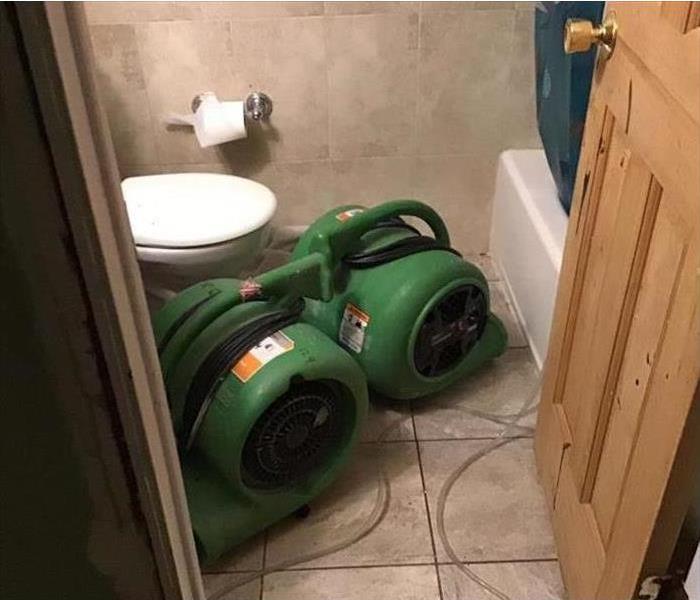Answering 3 Common Questions About Sewage Backups
5/4/2022 (Permalink)
Three Common Questions About Sewage Backups
Storms do not just cause damage to the exterior of your Doylestown, PA, property. They can harm the interior of the building, as well. For instance, heavy rains can cause a sewer backup in the basement. Here are answers to some commonly asked questions about this emergency.
1. What Causes Sewage Backups During Storms?
During a big storm, rain water ends up in the local sewers. This can overwhelm the sewers. If they cannot handle all of the fluid, the water backs up into sewer lines and flows into buildings.
2. How Can You Prevent Sewage Backups?
While you cannot stop the next storm from hitting your area, you can reduce the chances of the storm flooding your building. Start by installing a check valve into each floor drain. This valve should block sewage from coming through the drains.
A sump pump is also a useful tool during storms. It can drain excess water from the premises before the flood gets too deep.
3. What Do You Do After Sewage Backups?
A sewer backup typically involves bacteria-filled black water. This water should only be handled by professionals. You should thus limit your time in the affected areas until the fluid recedes. In the meantime, call storm damage restoration experts who can safely remove the water.
If you do have to enter the basement, be sure to cover exposed skin and wear rubber boots. You should also turn off the circuit breaker to avoid electrocution.
Flood waters may additionally turn off pilot lights on any appliances you keep in the basement. This could lead to a gas leak in the building. If you do smell gas, leave the premises right away and call your utility company.
A sewer backup can contaminate your property after a storm. With the help of emergency restoration specialists, however, you can get your commercial building back to normal.





 24/7 Emergency Service
24/7 Emergency Service
